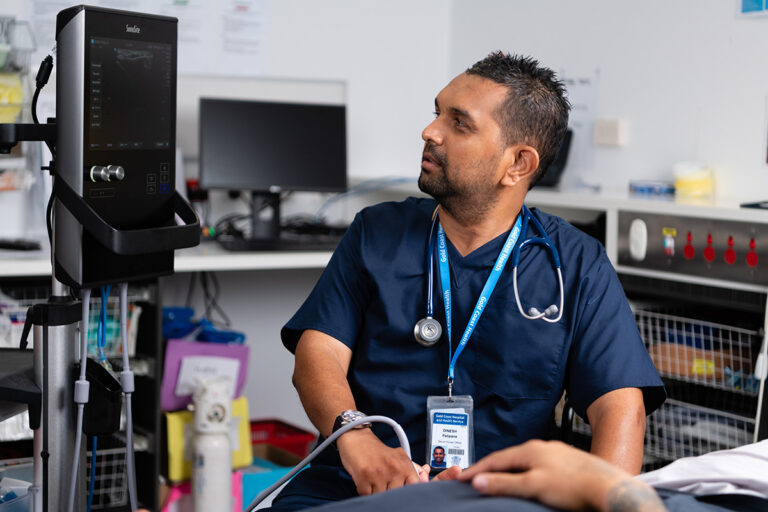At Leap in! HQ, we get asked a lot about supports that come from outside the NDIS. Many services you use every day are delivered by government or community organisations. These are known as mainstream and community supports, and they play a vital role alongside your NDIS funding.
What are mainstream and community supports?
Mainstream supports are the supports you can get from other government-funded services, like GPs, dental care, mental health care and education. For example, Medicare and JobSeeker payments are available to all Australians, whether you have a disability or not.
Community supports come from local organisations like religious groups, sporting clubs, local councils and charities. They might include community sports programs, local advocacy services or peer support groups. They help build connections and give you more options in everyday life.
Social and community supports can boost your wellbeing by helping you build confidence, connect and access new opportunities. With the right supports (like a dedicated NDIS worker), local programs and groups become easier to join, helping you feel more included and empowered.
The NDIS won’t fund a support if it’s more appropriately funded or provided by one of these community or mainstream supports. However, the NDIS can complement them by funding disability-specific needs in your plan.
NDIS support lists: What is and isn’t covered.
The NDIS funds supports directly related to your disability that meet the ‘reasonable and necessary’ criteria but it doesn’t cover everyday costs like school fees or groceries or the cost of social activities or classes.
While mainstream services provide general support (like teaching and textbooks), the NDIS focuses on disability-specific needs, such as personal care or specialist transport.
NDIS-funded social and community supports.
The NDIS can fund the extra help you need to take part in social and community activities. Funding in your NDIS Plan can also help you overcome some barriers to community participation.
Types of things that the NDIS may fund include:
- Specialised equipment or modification to the equipment you need to participate
- Help to build your skills to take part in these activities
- A support worker to assist you (for example, help changing into sports clothes or setting you up to join an activity)
- Help with travel to a recreation event when you can’t use public transport and it’s not reasonable for family or friends to take you.
How your NDIS budgets might cover community and mainstream supports.
Core – Assistance to access community, social and recreational activities.
- Assistance with Social, Economic and Community Participation covers a support worker to assist or supervise you at activities
- Does not cover the activity cost or your support worker’s entry fee.
Capacity Building – Improved Daily Living.
- Funds non-clinical group and individual therapies (e.g. speech or occupational therapy) to build skills and independence.
Capacity Building – Community participation activities.
- May cover fees (e.g. art classes, sports coaching) that build independence if prior approval is granted by the NDIS
- May include a few trial lessons to test your ability (e.g. dance, singing).
Non-NDIS disability social supports.
- Companion cards: State-issued cards that cover your carer’s entry to events
- Kids vouchers: Help children with concession cards join sports and community activities (e.g. NSW Active and Creative Kids, QLD FairPlay Voucher).
How do community and mainstream supports work together?
NDIS supports are only one part of your overall support network puzzle.
- The NDIS funds disability-specific needs
- Mainstream supports provide general services (healthcare, education)
- Community organisations add extra assistance through local clubs, advocacy or peer networks.
Together, they help you participate more fully in daily life.
Examples of mainstream and community supports.
Healthcare and medicines.
Healthcare providers in each state and territory (e.g., hospitals, GPs, dental care) are mainstream supports. The NDIS generally doesn’t cover health-related costs.
- The healthcare system is responsible for things like emergency services, surgery and mental health diagnosis and treatment, including Clinical Psychology
- The NDIS doesn’t cover Medicare “gap fees,” prescription medication or medical appointments that everyone in the community typically pays for.
Note: The NDIS may fund prescribed nutritional supplements only if directly related to your disability (e.g., home enteral nutrition).
Diagnosis and assessments.
- The health system is responsible for assessing, diagnosing and treating illnesses and injuries. This includes treatment for chronic illness not related to a disability, such as diabetes
- If assessments are needed specifically to identify the disability-related supports you require (e.g., functional assessments for an NDIS Plan), the NDIS may fund these, however, assessments required for a Diagnosis are typically not covered under NDIS plans.
NDIS versus school-provided supports.
Under the National Disability Standards for Education, schools must adjust the environment, curriculum and teaching methods to ensure students with disability can participate on the same basis as students without disability.
- The education system funds teaching aids, specialist teachers or technology for curriculum access
- NDIS funds supports related strictly to disability needs (e.g., personal care at school, assistive technology you use in all areas of life, specialised transport and help transitioning to further education or employment)
- The NDIS does not fund school fees, school uniforms, supports that assist with education, everyday supplies such as text books or school excursions.
It’s important that these supports meet the NDIS’ “reasonable and necessary” criteria. For more details, view our previous stories, Can the NDIS help my child at school and Study supports and the NDIS.
Employment.
- Mainstream employment services (e.g., via the Employment Assistance Fund) help cover reasonable workplace adjustments and related costs (Auslan interpreters, special equipment, etc)
- The NDIS can complement that by funding personal care during work hours or transport if public transport isn’t an option.
For information about what the NDIS can fund for school leavers, employment support and workplace assistance, check out NDIS employment supports: All you need to know.
Community services and programs.
Both mainstream and community-based organisations must ensure reasonable accessibility for people with disability (e.g., ramps, inclusive venues).
A few examples of community-based grants and funding include:
- Variety: Grants for children experiencing disadvantage or disability
- Morris Children’s Fund Inc.: Support for programs and equipment.
State-based supports
Each state also has specific programs or passes (e.g., parking permits, companion cards, travel subsidies).
Finding your support network.
Beyond the NDIS, accessing mainstream and community supports may help you find the right mix of supports for your needs. If you’re unsure where to turn, consider these options:
- Your local area coordinator (LAC) can connect you with mainstream and community supports
- Early childhood partners are usually well-connected with local resources for younger children
- Your plan manager or support coordinator can also guide you on NDIS and broader community supports
- Local councils, community centres and government websites often host inclusive programs or can point you to local resources.
We’re here to help.
If you need help understanding the different mainstream supports available or any other NDIS query, the Leap in! Crew is here to help.
Call us on 1300 05 78 78, email [email protected] or sign up to Leap in! plan management today.


